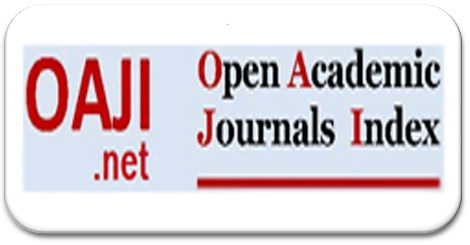Eksploitasi Alam dan Perusakan Lingkungan (Istinbath Hukum atas Ayat-Ayat Lingkungan)
Abstract
Environmental damage, especially in the form of land degradation, water and air, which are the resources supporting human, animal and plant life are allegedly assumed as the result of poor understanding of religious texts, lack of knowledge about nature and the anthropocentric view which considers that the universe was created solely for mankind. Therefore, in order to solve these various environmental problems, a solution referring to the holy book of Quran is mandatory. Damaging the environment by exploitation its natural resources is clearly antithetical to the teachings of Islam as the blessing of God to the universe. The Quran declares that humans are the caliphs in the earth and they must maintain the balance of this great precision universe created by God. Likewise, all forms of destruction are forbidden in Islam and such acts are unlawful. The culprit are entitled to penalties and sanctions in accordance with the level of mistakes they do.
Keywords
Full Text:
PDFReferences
Abù Ishaq asy-Syàthibiy. Al-Muwàfaqàt fì Ushùl asy-Syarì‘ah. Juz I. Mesir: Maktabah atTijàriyyah al-Kubrà, t.th.
Abu al-Fida Ismail bin ‘Amr bin Katsir al-Quraisy al-Dimasyqy. Tafsìr al-Qur'àn al’Azhim. t.tt: Dàr at-Thayyibah li an-Nasyr wa al-Tauzi’, 1999.
Al-Ashfahàniy. Al-Mufradàt fî Garîbil-Qur'àn, Beirut: Dàrul-Ma‘rifah, t.th.
Ali Yafie. Menggagas Fiqh Lingkungan Hidup. Jakarta: UFUK Press, 2006.
Azyumardi Azra, Manusia dan Kerusakan Lingkungan: Pespektif Gender Qur'ani, dalam Nur Arfiah Febriani, Ekologi Berwawasan Gender dalam Perspektif Alquran. Bandung: Mizan, 2014.
Fazlur Rahman. Tema-tema Pokok Alquran. Diterjemahkan oleh Anas Mahyudin, Bandung: Pustaka, 1983.
Al-Ghazàli. Syifà' al-Galìl fì Bayàni Syàbahi wa al-Mukhayyal wa Masàlik at-Ta‘lìl. Baghdad: Mathba‘ah al-Irsyàd, 1971.
Husain Hamid Hasan. Nazhariyah al-Mashlahah fi al-Fiqh al-Islàm. Beirut: Dàr anNahdhah al-‘Arabiyyah, 1971.
Ibnu ‘Arabiy, Futùhàt al-Makkiyyah fî Ma‘rifah al-Asràr al-Malikiyyah wa al-Mulkiyyah, Juz III. Beirut: Dàr Ihyà' at-Turàts al-‘Arabiy, t. Th.
Izz ad-Dìn bin ‘Abdussalàm. Qawâ‘id al-Ahkàm fì Mashàlih al-An-Anàm. t.tp: Mathba‘ah al-Istiqàmah, tt.
Lester R. Brown, “Challenge of the New Century”, dalam The Worldwacth Institute, State of the Word 2000, New York: Northon, 2000.
M. Abdurrahman. Eko–Terorisme: Membangun Paradigma Fikih Lingkungan. Bandung, 2007.
Syihabuddìn Maùmud bin Abdillah al-Husainy al-Alùsy, Ruhùl al-Ma’àny fì Tafsir alQur'àn al-’Azhìm wa as-Sab’u al-Matsaniy, Juz 6, Beirut; Dàr al-Fikr, tt.
Yùsuf al-Qardhàwi, Ri‘àyah al-Bì'ah fì Syarì‘ah al-Islàm, Cet. 1. Kairo: Dàr asy-Syurùq, 1421 H/2001 M.
_____, al-Ijtihàd al-Mu‘àshir. Beirut: al-Maktab al-Islamiy, 1998.
_____, Diràsah fì Fiqh Maqàshid asy-Syarì‘ah. Cet.1. Kairo:Dàr asy-Syurùq, 1427 H/2006 M.
Az-Zamakhsyariy, Tafsìr al-Kasysyāf ‘an Haqà'iqut-Tanzìl wa ‘Uyun al-Aqàwil, Juz 3, Beirut: Dārul-Kutub, t.th.
DOI: http://dx.doi.org/10.22373/substantia.v17i2.4101
Refbacks
- There are currently no refbacks.
Copyright (c) 2015 Reflita Reflita

This work is licensed under a Creative Commons Attribution-NonCommercial 4.0 International License.
SUBSTANTIA: JURNAL ILMU-ILMU USHULUDDIN
DITERBIKAN OLEH:
FAKULTAS USHULUDDIN DAN FILSAFAT
UNIVERSITAS ISLAM NEGERI (UIN) AR-RANIRY BANDA ACEH, ACEH INDONESIA
ALAMAT REDAKSI:
Gedung Fakultas Ushuluddin Lantai II, Fakultas Ushuluddin, UIN Ar-Raniry, Jln. Lingkar Kampus, Kopelma Darussalam Banda Aceh, Aceh 23111.Telp. (0651)7551295. eMail: [email protected]

This work is licensed under a Creative Commons Attribution-NonCommercial 4.0 International License.


.png)




















